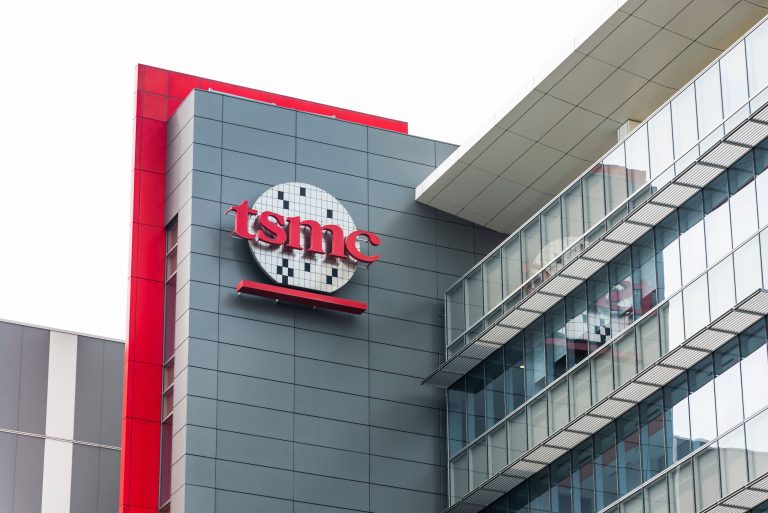Taiwan Semiconductor Manufacturing Co. Ltd. (NYSE: TSM) confirmed that artificial intelligence is far from being a bubble as it reported strong third-quarter earnings and raised its revenue outlook for the full year.
The company continues to leverage its dominant position in global chip production, maintaining resilience even as peers like ASML warn of weakening demand.
While TSMC’s continued strength bodes well for AI investors in the short term, it may present long-term risks for the United States.
US dependency on TSMC for chip manufacturing
TSMC’s market position remains robust as it gains market share over competitors like Intel.
The semiconductor giant manufactures about 90% of the world’s advanced chips, making US companies like AMD, Nvidia, and Apple heavily reliant on TSMC’s production capabilities.
This heavy reliance poses a strategic risk for the US, especially given TSMC’s proximity to mainland China.
With limited alternatives and rising Sino-US tensions, American tech firms face potential supply chain vulnerabilities.
Moreover, advanced chips power critical US military and infrastructure systems, raising national security concerns about relying so heavily on a foreign manufacturer.
As of now, TSMC’s New York-listed shares have gained more than 100% year-to-date in 2024.
US efforts to reduce dependency on TSMC
The US government is aware of the risks associated with its dependency on TSMC and has taken steps to address them through the CHIPS Act, a multi-billion-dollar initiative aimed at bolstering domestic semiconductor manufacturing.
TSMC has also announced plans to build production facilities in Arizona.
However, these efforts face significant challenges.
TSMC is not expected to manufacture its most advanced chips on US soil for another three to four years—and by that time, those chips may be outdated.
Despite substantial investments, the US is projected to account for only 20% of global advanced chip production by the end of the decade, down from 37% in 1990.
The United States will likely remain heavily dependent on TSMC for advanced chip manufacturing, leaving it exposed to supply chain and security risks.
Wall Street remains bullish on TSMC, with a consensus “buy” rating and a dividend yield of 1.24% at the time of writing.
TSMC stock performance
TSMC’s shares have surged more than 70% this year, outperforming many of Asia’s major tech companies.
The growth mirrors investor confidence in the AI theme, with US retail investors actively trading TSMC’s American depositary receipts (ADRs).
As of early trading, TSMC’s ADRs rose 4.5% on Robinhood’s platform.
Meanwhile, shares of Japanese chip equipment makers like Lasertec Corp. pared early losses after TSMC’s earnings announcement.
However, investors remain cautious following ASML Holding NV’s recent report, which revealed weaker-than-expected bookings due to slower recovery in the mobile and automotive sectors.
The post TSMC may pose a long-term threat to US: here’s why appeared first on Invezz

